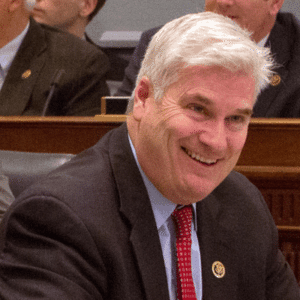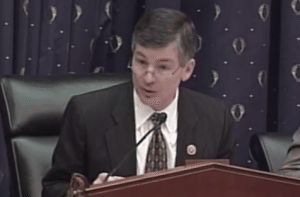This coming week the House of Representatives will debate several bills previously approved by the Financial Services Committee. The legislation is designed to improve access to capital for SMEs by reducing regulatory burdens and streamlining the process.
 HR 2357, the Accelerating Access to Capital Act, sponsored by Representative Ann Wagner will consist of two other bills approved by the Committee: HR 4850 or the Micro Offering Safe Harbor Act and HR 4852 the Private Placement Act.
HR 2357, the Accelerating Access to Capital Act, sponsored by Representative Ann Wagner will consist of two other bills approved by the Committee: HR 4850 or the Micro Offering Safe Harbor Act and HR 4852 the Private Placement Act.
HR 2357 seeks to simplify the SEC’s registration regime for smaller companies, lowering compliance costs associated with redundant paperwork so companies can direct more resources to growing their businesses.
 HR 4850, crafted by Representative Tom Emmer allows a company to raise up to $500,000 from 35 or fewer investors. This “micro offering” seeks to allow raising capital without overly burdensome registration requirements. This change will allow small business to operate with confidence that they are not in violation of the law when doing a micro offering if the following requirements are met. Each investor must have a substantive pre-existing relationship with an owner. The bill passed the Financial Services Committee by a vote of 34-25 on June 16.
HR 4850, crafted by Representative Tom Emmer allows a company to raise up to $500,000 from 35 or fewer investors. This “micro offering” seeks to allow raising capital without overly burdensome registration requirements. This change will allow small business to operate with confidence that they are not in violation of the law when doing a micro offering if the following requirements are met. Each investor must have a substantive pre-existing relationship with an owner. The bill passed the Financial Services Committee by a vote of 34-25 on June 16.
 HR 4852, sponsored by Representative Scott Garrett, is designed to increase the use of private placements. According to the Committee description, Title II of the JOBS Act removed the ban on general solicitation or advertising for SEC Regulation D offerings. The SEC has proposed rules that will have a chilling effect on the positive changes made by the JOBS Act. HR 4852 directs the SEC to revise Regulation D to ensure that small businesses do not face complicated and unnecessary regulatory burdens when attempting to raise capital through Regulation D offerings. This bill passed the Financial Services Committee by a vote of 33-26 on June 16.
HR 4852, sponsored by Representative Scott Garrett, is designed to increase the use of private placements. According to the Committee description, Title II of the JOBS Act removed the ban on general solicitation or advertising for SEC Regulation D offerings. The SEC has proposed rules that will have a chilling effect on the positive changes made by the JOBS Act. HR 4852 directs the SEC to revise Regulation D to ensure that small businesses do not face complicated and unnecessary regulatory burdens when attempting to raise capital through Regulation D offerings. This bill passed the Financial Services Committee by a vote of 33-26 on June 16.
Another bill, HR 5424 or the Investment Advisers Modernization Act sponsored by Representatives Robert Hurt, Juan Vargas, Steve Stivers and Bill Foster, will update portions of a 76-year-old law, the Investment Advisers Act of 1940, by removing duplicative regulations affecting federally registered investment advisers that impose an unnecessary burden on small business’ access to capital.
 Jeb Hensarling, Chair of the Financial Services Committee, commented on the bills coming to the House floor;
Jeb Hensarling, Chair of the Financial Services Committee, commented on the bills coming to the House floor;
“It’s unacceptable that our economy is barely growing. If we want to ignite strong and lasting growth, help create more jobs and build a healthy economy for all Americans, the answer is not more debt, more spending and more regulations from Washington. Instead, we need more entrepreneurs and more small businesses on Main Street. These bills are solutions that will more appropriately balance rules with the urgent need to provide small businesses with greater access to capital so they can start up, hire workers and grow.”

